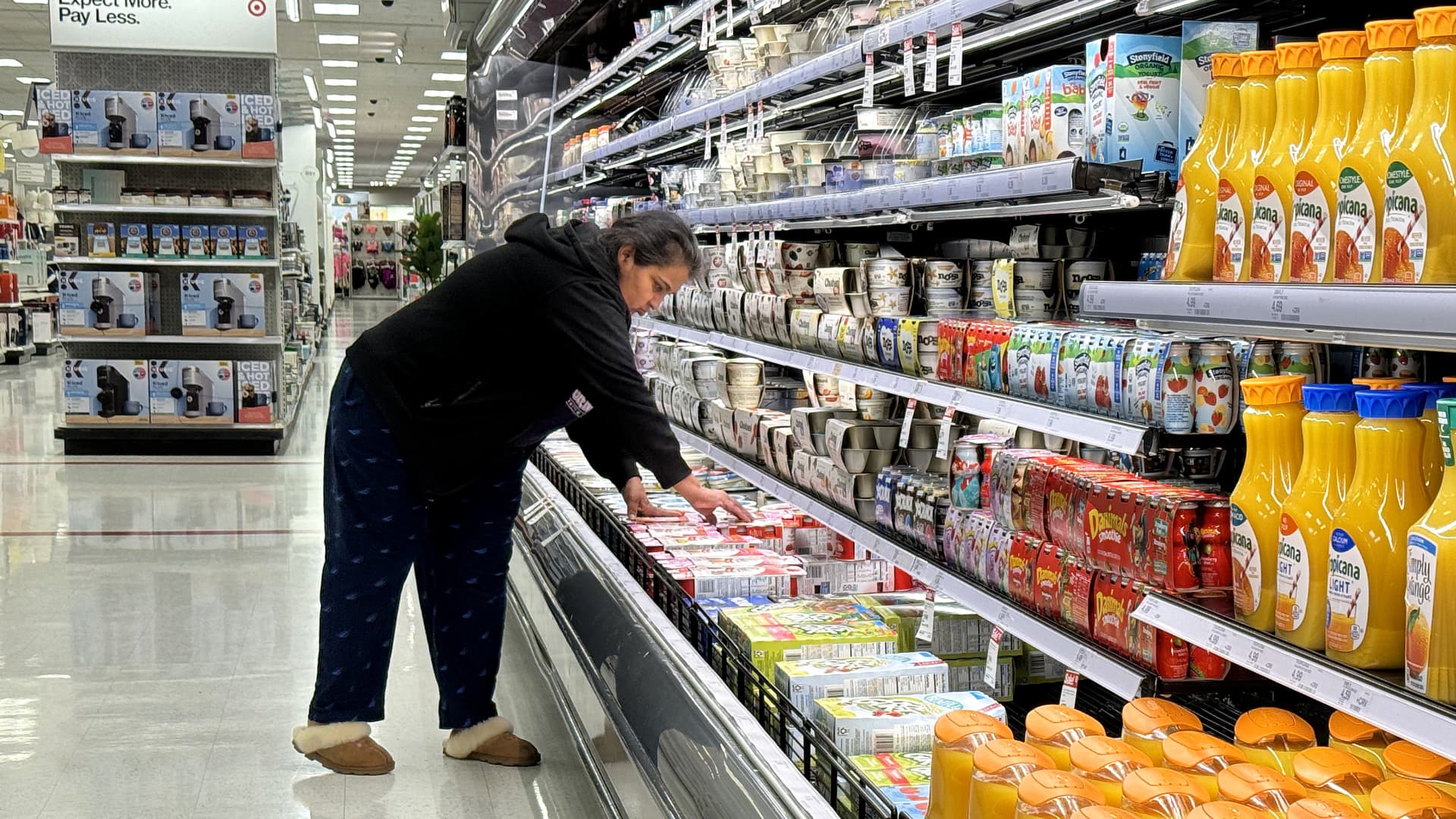Pro-EU demonstrators protest outside Parliament against Brexit on the fourth anniversary of Britain’s official departure from the European Union on January 31, 2024 in London, United Kingdom.
Future publishing | Getty Images
LONDON – Post-Brexit Britain has “performed significantly worse” than other advanced economies since the 2016 EU referendum, according to a new analysis from Goldman Sachs aimed at quantifying the economic costs of the Brexit vote.
In a note last week titled “The Structural and Cyclical Costs of Brexit,” the Wall Street bank estimated that the U.K. economy grew 5% less than other comparable countries over the past eight years.
However, the actual damage to the UK economy could be between 4% and 8% of real gross domestic product (GDP), the bank said, acknowledging that it was difficult to extrapolate the impact of Brexit from other simultaneous economic events, including Covid-19. to derive the pandemic and the energy crisis of 2022. Real GDP is an inflation-adjusted growth indicator.
Goldman Sachs attributed the economic deficit to three key factors: lower trade; weaker business investment; and labor shortages as a result of lower immigration from the EU.
The United Kingdom voted to leave the EU by 52% to 48% on June 23, 2016, but officially left the union on January 31, 2020.
The Bank estimates that over this period to date, the UK’s trade in goods has lagged other advanced economies by around 15%, while business investment has remained “significantly below pre-referendum levels”.
Meanwhile, immigration from the EU declined – a key promise of the Vote Leave campaign – and was then replaced by a less economically active cohort of non-EU migrants, particularly students, the study says.
“Taken together, the evidence suggests that Brexit will impose significant production costs in the long term,” the report’s authors said.
The bank noted that the decline in trading was in line with expectations and the underperformance in investments was “more pronounced” than expected. However, changes in immigration behavior are the main cyclical impact on the British economy – and in particular on inflation.
“The change in immigration flows post-Brexit has reduced the elasticity of labor supply in the UK, contributing to the rise in inflation post-pandemic and pointing to more cyclical labor market and inflation pressures going forward,” the report said.
The UK’s real GDP per capita has barely risen above pre-Covid levels and is currently 4% above mid-2016 levels, it said. This compares to 8% in the Eurozone and 15% in the US
Meanwhile, the UK experienced higher inflation over the period, with consumer prices in the UK rising 31% since mid-2016, compared to 27% in the US and 24% in the euro zone, it said.
While the report suggests that new non-EU trade deals could potentially reduce the costs of Brexit, estimates suggest that the benefits are likely to be small.
The British government estimates that its free trade agreement with Australia will increase Britain’s GDP by 0.08% a year, while the economic impact of a new trade deal with Switzerland is unclear.
Meanwhile, the timelines for possible new trade deals with key partners such as the US and India have not yet been announced.
Source link
2024-02-14 07:52:42
www.cnbc.com









